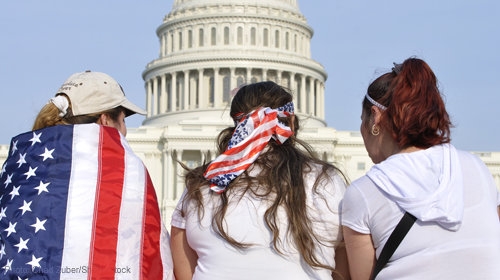Relief and Caution
Page Media

On the heels of the president’s executive action, the decision by U.S. Immigration and Customs Enforcement (ICE) to end the deeply-flawed Secure Communities program is a step in the right direction. But with a new program in its place that will target “enforcement priorities,” we are cautious.
This decision acknowledges that the Secure Communities program had led to widespread civil rights violations, wasted taxpayer dollars and undermined community trust in local law enforcement. For years, the ACLU of California has campaigned and litigated to end this ill-conceived and harmful program:
- Two ACLU Foundation of Southern California class-action lawsuits are pending in federal court challenging the constitutionality of immigration detainees. (Gonzalez v. ICE; Roy v. County of Los Angeles)
- The ACLU of California worked with law enforcement agencies across the state to ensure that they did not hold people on immigration detainers – the signature feature of the Secure Communities program – in violation of the constitution. Nearly all of California’s counties stopped complying with detainers earlier this year. See map.
Under the new directive, ICE will no longer request that local law enforcement agencies detain individuals on their behalf except in certain circumstances. But through a new Priority Enforcement Program (PEP), ICE will continue to notify local law enforcement of anyone in custody that they believe may be subject to removal and rely on local cooperation to transfer certain individuals.
We’re concerned that by entangling local law enforcement in the federal business of immigration enforcement, PEP will only perpetuate the problems we’ve long advocated against. We’ve been down this road of ‘reprioritizing’ before and have seen ICE continue to detain and deport people who have no prior criminal record and have not committed a serious offense.
Much work remains.
Jennie Pasquarella is staff attorney at the ACLU of Southern California.
